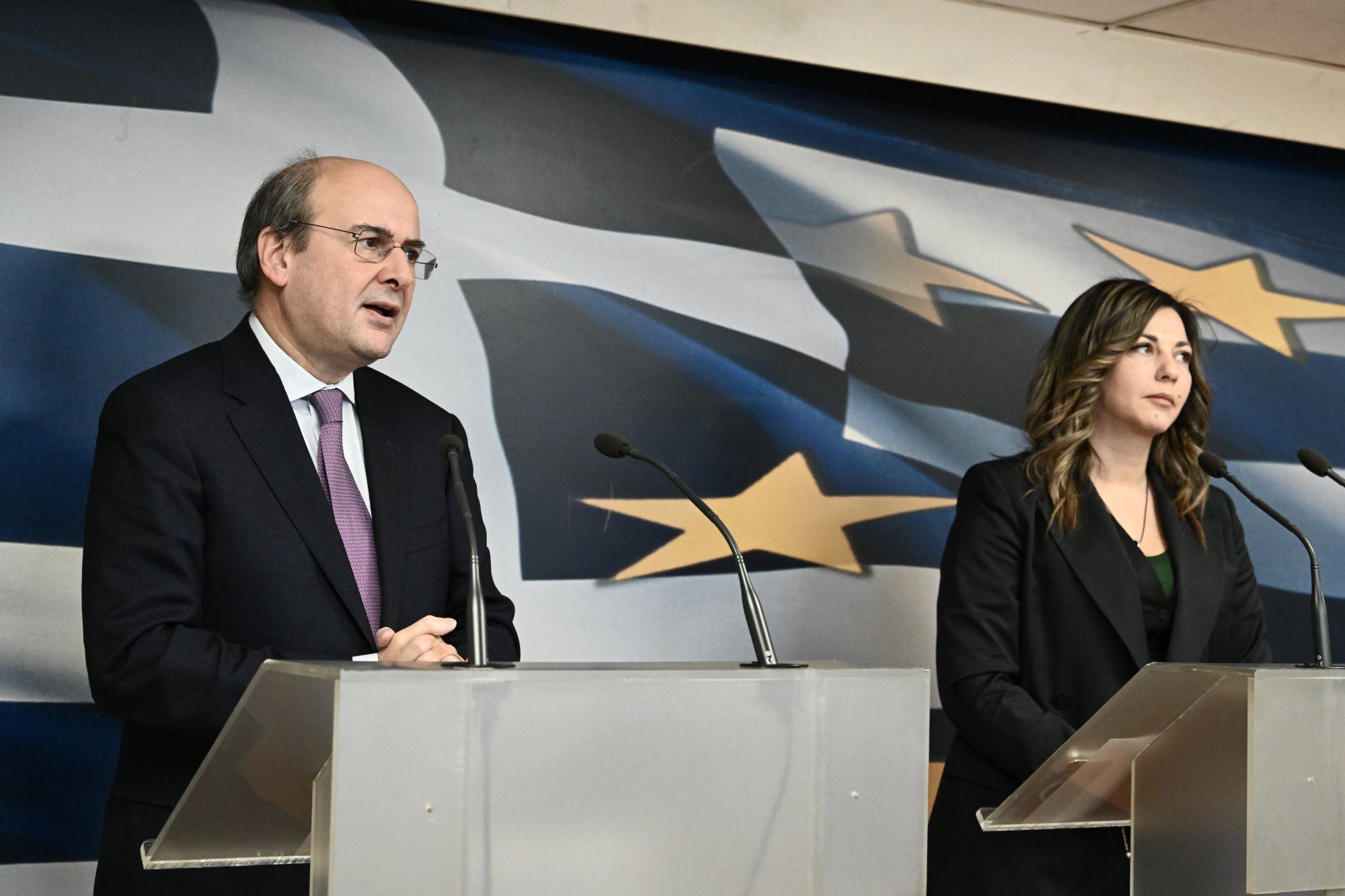Minister of National Economy and Finance, Kostis Hatzidakis, and the Minister of Social Cohesion and Family, Sofia Zacharaki presented support measures for young parents facing excessive expenses on Monday.
Initially, the two ministers announced an increase in childbirth allowance, rising from 2,000 to 2,400 euros for the first child, with a scaling up to 3,500 euros with a retroactive effect, including children born in 2023.
The increase ranges from 400 to 1,500 euros. Specifically, it is set at 2,400 euros for the first child, 2,700 euros for the second child, 3,000 euros for the third child, and at 3,500 euros for more than four children.
Sofia Zacharaki, clarified that the payment will be made in two installments starting from April with the first installment disbursed in the first month after the child’s birth, and the second within the first five months from the child’s birth.
As clarified by Mr. Hatzidakis, the new measure applies to approximately 300,000 families over a two-year period. “The funds, totaling around 90 million euros, come from savings resulting from measures for self-employed professionals” as the minister stated.
Further measures include:
1. An increase of 1,000 euros in the tax-free allowance for families with children.
2. Extension of maternity allowance from 4 to 9 months for self-employed professionals and farmers.
3. Increase in income criteria for heating allowance from 3,000 euros to 5,000 euros per child.
4. Social tariff for electricity for large families.
5. Reform of the child allowance for the public sector, with a 20-euro increase for the first child and 50 euros for the second and each additional child.
6. Introduction of profit ceiling for infant formula.





